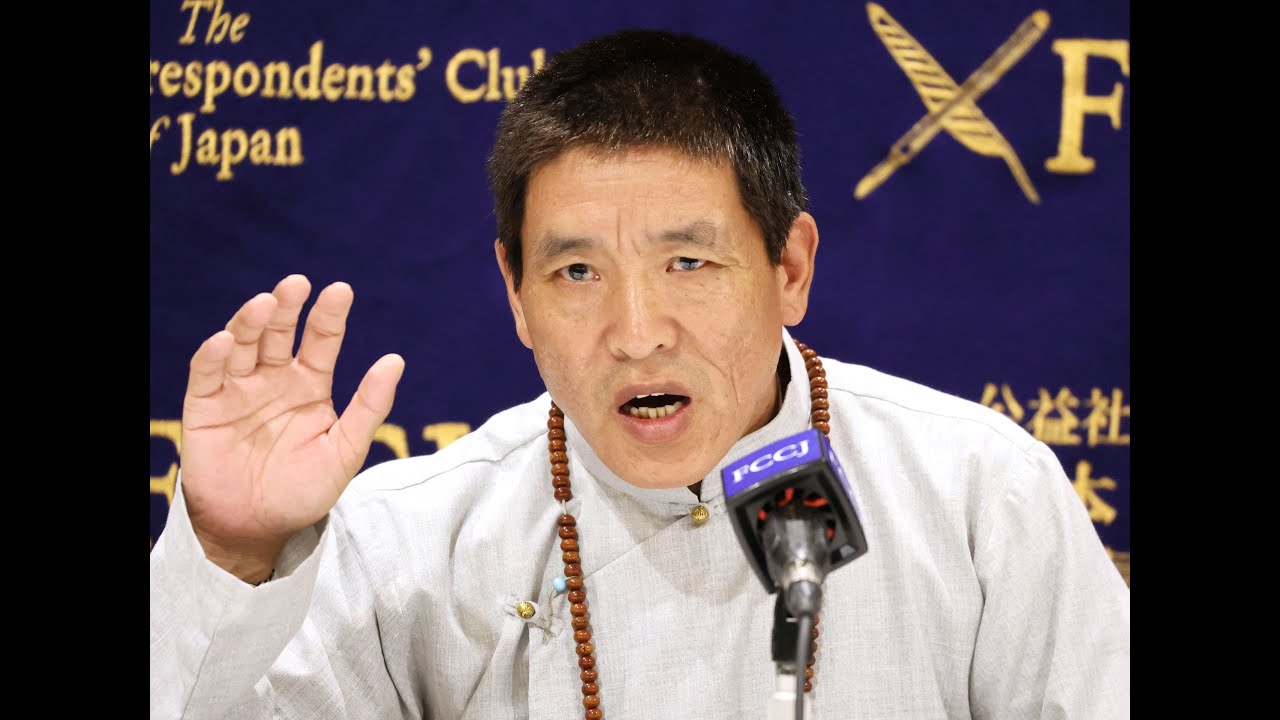By Henry Rogers
Between 2007 and 2008, Tibetan filmmaker Dhondup Wangchen traveled around Tibet, interviewing Tibetans about their plight against neighboring China. The resulting film, Leaving Fear Behind, was pivotal in showing the world what was really happening in Tibet. Wangchen was arrested by the Chinese government after the film’s release and imprisoned for six years. He now lives in America, traveling and raising awareness about the oppression of Tibet.
The film interviews dozens of Tibetans and centers on how they are treated and their perspective on the 2008 Olympic games in Beijing.
The Foreign Correspondents Club of Japan (FCCJ) hosted Dhondup Wangchen for a short screening of his documentary and press conference last week to speak on the issues Tibet faces and to give insight into the making of his film.
When the topic of the Olympics was broached in the film, one main sentiment was shared among interviewees — “The Olympics are important, but I do not care.” Indeed, they don’t have any reason to. The Chinese government promised reforms and greater treatment of ethnicities so they could hold the Olympics, but these reforms never came. And the oppression of Tibet continued.
The actions of the Chinese government have been a massive contributing factor toward the disappearance of Tibetan culture and language. Interviewees spoke about how they were terrified and outraged to watch their traditions and language disappear before their eyes.
Religious oppression is one of the main strategies utilized by the Chinese government. One scene showed a family watching the Dalai Lama on TV and the people showing their respects. The interviews after this emphasized how connected the people were to the Dalai Lama and how they wanted him to return.
During the press conference, Wangchen first spoke about how kids two to four are being forced to go to boarding schools where they are being taught only Chinese language and culture. Then later in life, around seven to eight, while they are still in these schools, they are only allowed to see their parents once or twice a month.
All of the normal small Tibetan schools that these children would have traditionally attended have been all but wiped out.
Traditionally, nomads in Tibet have lived by themselves, allowing them to preserve elements of Tibetan culture. The Chinese government has realized this and is forcing them to relocate to cities. On top of this, other groups of people are moving, or in some cases, are being moved to Tibet, which is making it increasingly difficult for Tibetans to find jobs in their own country.
In Tibetan Buddhism, kids are able to enter the monastery at 6-7 years old, but now they are not allowed to become a monk until 18. As a result, the number of Tibetan monks has shrunk dramatically because of this change in policy.
At the very end of the film, Dhondup Wangchen explains that making the film wasn’t about money or fame, but “about the plight of the Tibetan people” and ending their oppression.
These issues all come from the same goal of the Chinese government to systematically weaken the national identity of Tibetan people. China is so interested in Tibet because it is rich in valuable resources containing everything from fresh water to various minerals– resources which are currently difficult to retrieve with Tibetans in the way. Their actions have negatively impacted the continuation of Tibetan culture and language and can be seen as an attempt to secure these resources. Homogenizing the people is just one step toward protecting their investment.
The documentary Leaving Fear Behind by Dhondup Wangchen can be found here.
